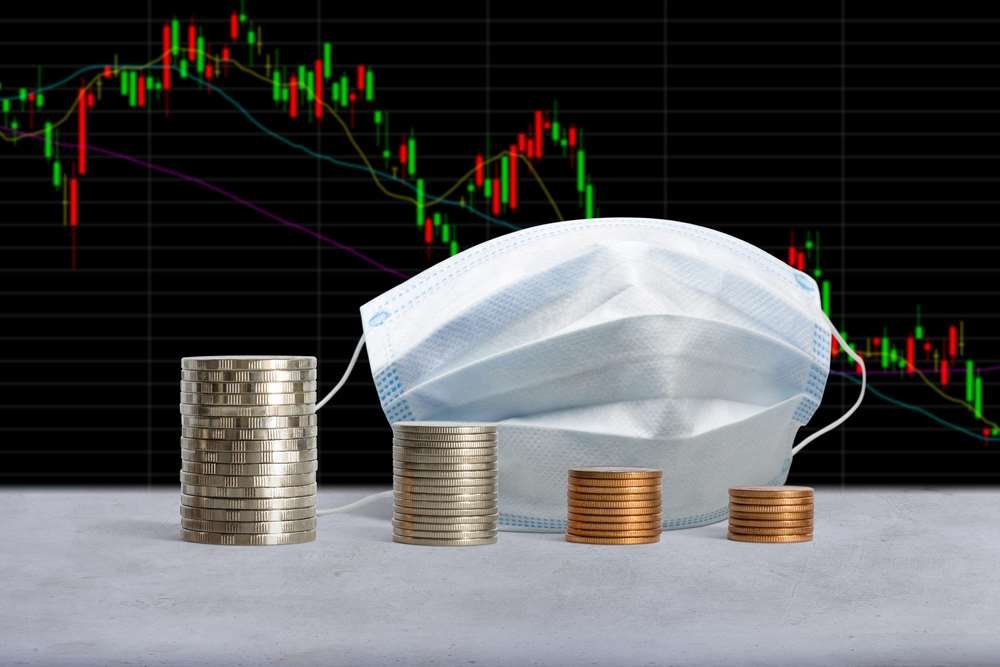Covid-19 sends markets into tailspin
Published by Gbaf News
Posted on March 11, 2020
4 min readLast updated: January 21, 2026

Published by Gbaf News
Posted on March 11, 2020
4 min readLast updated: January 21, 2026

By Joshua Roberts, Associate Director at Chatham Financial
This week had been pencilled into financial market participants’ diaries as one to watch for months. On Wednesday, the UK Government is set to unveil its first budget, billed as one of the most radical in recent years. Sajid Javid’s shock resignation added another layer of intrigue: now, the chancellor reading from the red box will be the relatively unknown Rishi Sunak – although many suspect the script will have been written by Number 10 rather than the Treasury. And yet, events have overtaken us. Sunak’s debut will now be overshadowed by the market turmoil resulting from Covid-19’s ever expanding reach.
There has been no shortage of drama so far. Last Tuesday saw an emergency rate cut of 0.5% by the Federal Reserve – its first unscheduled announcement since the heights of the financial crisis in 2008. Meanwhile, US Treasury yields spent the week in free fall. The ten-year yield breached record low after record low to sit at its current level of below 0.5%. The same story was seen across the maturity spectrum: today, for the first time ever, the entire US yield curve going out to 30 years is below the 1% mark.
Further rate cuts on the horizon
The expectation is that Tuesday’s cut was only the beginning. Economists at Goldman Sachs, for instance, expect further cuts of 0.5% at each of the upcoming Fed meetings in March and April. Meanwhile, the European Central Bank and Bank of England have also indicated their preparedness to act – although with EUR and GBP rates already at (or near) historic lows, it is unclear how much firepower is left at their disposal. Nevertheless, the Bank of England is expected to make at least one 0.25% cut at the next Monetary Policy Committee meeting, on 26 March.
Unsurprisingly, the monetary policy action took place amid a feverish equity market. By the time the Fed made its surprise announcement, the S&P 500 had already recorded its fastest ever correction (defined as a drop of more than 10%) in just six days. Equities across all global markets are showing much the same trend, and there is no sign of any slowing yet. Monday saw shares face their worst session since the financial crisis, and many major indices have slumped by up to 20%.
Against this backdrop, most governments might choose to delay significant announcements on trade policy until global markets have stabilised somewhat. But not Saudi Arabia. On Sunday night, the Kingdom announced that it would be dramatically increasing its oil production and selling crude at heavy discounts, starting next month. The move follows a failure to agree production cuts between Opec and Russia, creating a flood of supply just as demand is faltering due to the coronavirus. Accordingly, oil prices plunged by as much as 30% in the first few seconds of the market opening on Sunday evening. At the time of writing, they are still more than 20% below their pre-weekend level.
Monetary policy vs fiscal stimulus
Market moves of the magnitude that we are currently seeing inevitably invite comparisons to the 2007-2008 financial crisis – and this is certainly the biggest global economic shock we have seen since then. But it is important to recognise the differences between the two. The last crisis represented a prolonged shock to demand, with households and businesses facing a long slog back to recovery after the financial system froze. With the exception of oil, Monday’s shock is to both supply and demand, with large scale factory closures and travel restrictions harming both production and consumption of goods and services. The upside of the current situation is that we can expect a comparatively swift recovery after the threat of the outbreak has passed, with both supply and demand returning to normal levels relatively quickly. On the downside, scope for central banks to address the problem with monetary easing is much more limited. Rate cuts and quantitative easing are not effective tools for fighting a pandemic.
And so, in the UK at least, we return to Sunak’s budget on 11 March. Following its election pledge to “level up” the country, the government had already indicated that a significant loosening of the fiscal taps was ahead. Now, with Covid-19 about to place a significant strain on the NHS, public services, and businesses around the country, Number 10 needs to make good on its promise. For some time, central bankers around the world have been issuing warnings about the limits of monetary policy, and the need for government spending to take up some of the slack. With a global recession on the cards, now is the time for those warnings to be heeded.
Explore more articles in the homepage category











